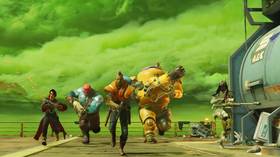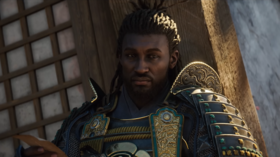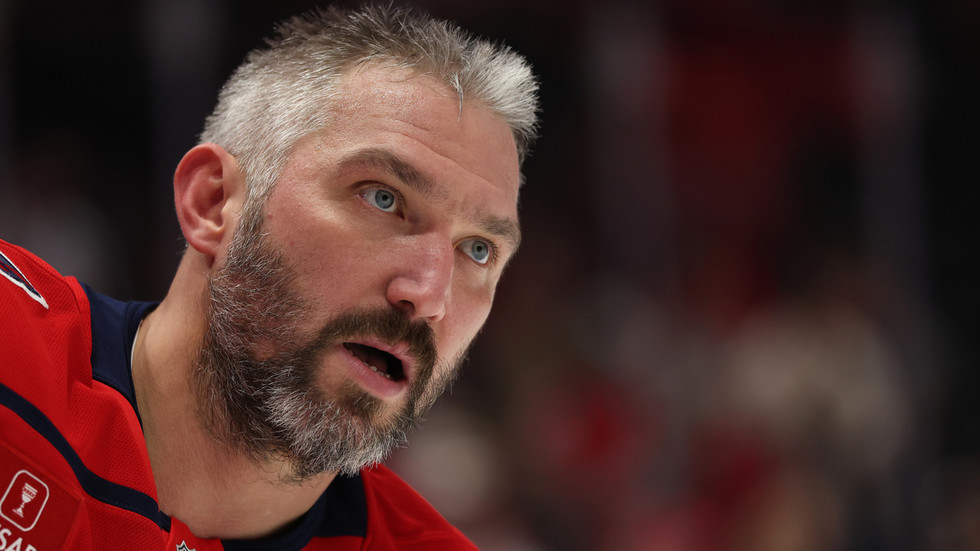All is not well at Ubisoft. Since the start of 2024, its stock price has dropped by half. And in the last five years, it lost an astonishing 80% of its value. And during that time, the company didn’t stop making AAA games and never went into obscurity. So what is making investors abandon ship?
Fifteen years ago, Ubisoft basically reinvented the open world in gaming. Starting with Assassin’s Creed 2, they have created a distinctly ‘Ubisofty’ kind of an open world – vast, detailed, realistic, masterfully crafted, and littered with icons indicating different activities for the player. In 2009, this felt fresh and amazing – open worlds were no longer barren, there was so much to do, so many places to go, things to discover, side quests to complete. The world was no longer just a backdrop, it was a character of its own, helping immerse you into the story. You might not remember many of the characters in Assassin’s Creed or Far Cry, but you sure remember the setting – Renaissance Rome of AC Brotherhood, the Caribbean during the golden age of piracy of AC Black Flag, or rural Montana besieged by religious fanatics of Far Cry 5. Ubisoft games could be flawed, some were better than the others, but the world the game took place in never disappointed.
No matter how good something is initially, it needs to evolve. And that is what Ubisoft’s games failed to do. In 2024 you still do the same things you did in 2009 – you climb towers to reveal the map around them, you are still greeted by a myriad of icons begging you to go somewhere. To be fair, Ubisoft started to address this problem, adding an option to remove many of them and making players rely on in-game descriptions and creating a minigame of finding your target as soon as you get near enough. It felt like a gimmick and an attempt to hide the problem rather than to fix it. Players started to get bored with this game design and the lack of true innovation at Ubisoft.
Then came another problem – Ubisoft fell victim to the ‘modern audience’ mentality. It desperately wanted to create an image of a company that put inclusivity at the heart of its games, even if it meant having to retcon things. In Assassin’s creed, a game centered around uncovering ancient events using genetic memory – which means having some characters pre-defined within the in-game history – received an option to play as a man or a woman, throwing away the rock-solid connection between ancient and modern times. In For Honor, a competitive game about hand-to-hand combat between knights, samurai and vikings, cinematics were released featuring slim women warriors during big game conventions (there had been no in-game indication of a character's gender up to that point). This baffled many people. While not many were against the portrayal of female warriors, this looked more like a publicity stunt than a genuine desire to accommodate more players into your game.
This identity crisis continued. Watchdogs Legion took it to an extreme – you could recruit any NPC off the street “to fight the good fight,” but to play as a grandma tearing it up with a submachine gun was ridiculous. And not in a good way. The Saints Row series showed that you can make a fully ridiculous game that doesn’t have a shred of seriousness, and it will be fun to play. Watchdogs failed to be either serious or silly.
Ubisoft stopped making something new and lost its identity. Every new game was another installment of a franchise, or an update to a live-service game. Another Assassin’s Creed, another Tom Clancy’s something, another Anno, another Crew. In its fear of making something new, Ubisoft even resurrected The Settlers. The only ‘new’ things in its catalog were Riders Republic – a game in (you guessed it) an open world about extreme winter sports; Skull and Bones – a game about pirate naval warfare that was in development for nine years and released to the most lukewarm reception possible; and Star Wars Outlaws – a game that feels and looks like a game from 2010.
All these games share a common problem – if you’ve played one, you’ve played them all. You can ask any gamer what a Ubisoft game is, and they will give the same answer – open world, generic story, safe and recognizable game design. For almost a decade, there were no Ubisoft games that truly left a mark on the industry like early Splinter Cell, Far Cry or Assassin’s Creed did. And if there’s more of the same, fewer and fewer people want it.
The recent controversy with Outlaws and a fictional black samurai in AC Shadows threw Ubisoft into a panic. The CEO decided to blame players for having ‘extraordinary’ expectations – not the rushed production, not pandering to a fictional audience and not the poor management. There is no doubt that there are very talented and creative people working on Ubisoft games – the ones that make their vibrant worlds, animate and voice characters, polish and breathe soul into their games. These people cannot achieve their full potential when they have to adhere to corporate rules and release new content before it’s ready.
To add insult to injury, Ubisoft singlehandedly started a conversation online and in governments about game preservation and digital ownership. When The Crew’s servers were shutting down, there was no other way to play this online-only game. There was no community toolkit release that would allow enthusiasts to make their own servers and add more life to the game. Ubisoft went even further – many players reported that the game was removed from their online libraries. To say that this kind of behavior is anti-consumer and borderline scammy is an understatement.
These days Ubisoft can’t catch a break. It seems like every decision they make digs them even deeper. But unless they start treating their audience fairly, stop hastily rehashing the same formula again and again, and let their people make the very best product they can, they can’t turn this around. When quantity becomes quality again, Ubisoft can regain all that has been lost, both in stock price and in players’ trust.
The statements, views and opinions expressed in this column are solely those of the author and do not necessarily represent those of RT.

 6 months ago
65
6 months ago
65








 We deliver critical software at unparalleled value and speed to help your business thrive
We deliver critical software at unparalleled value and speed to help your business thrive






 English (US) ·
English (US) ·